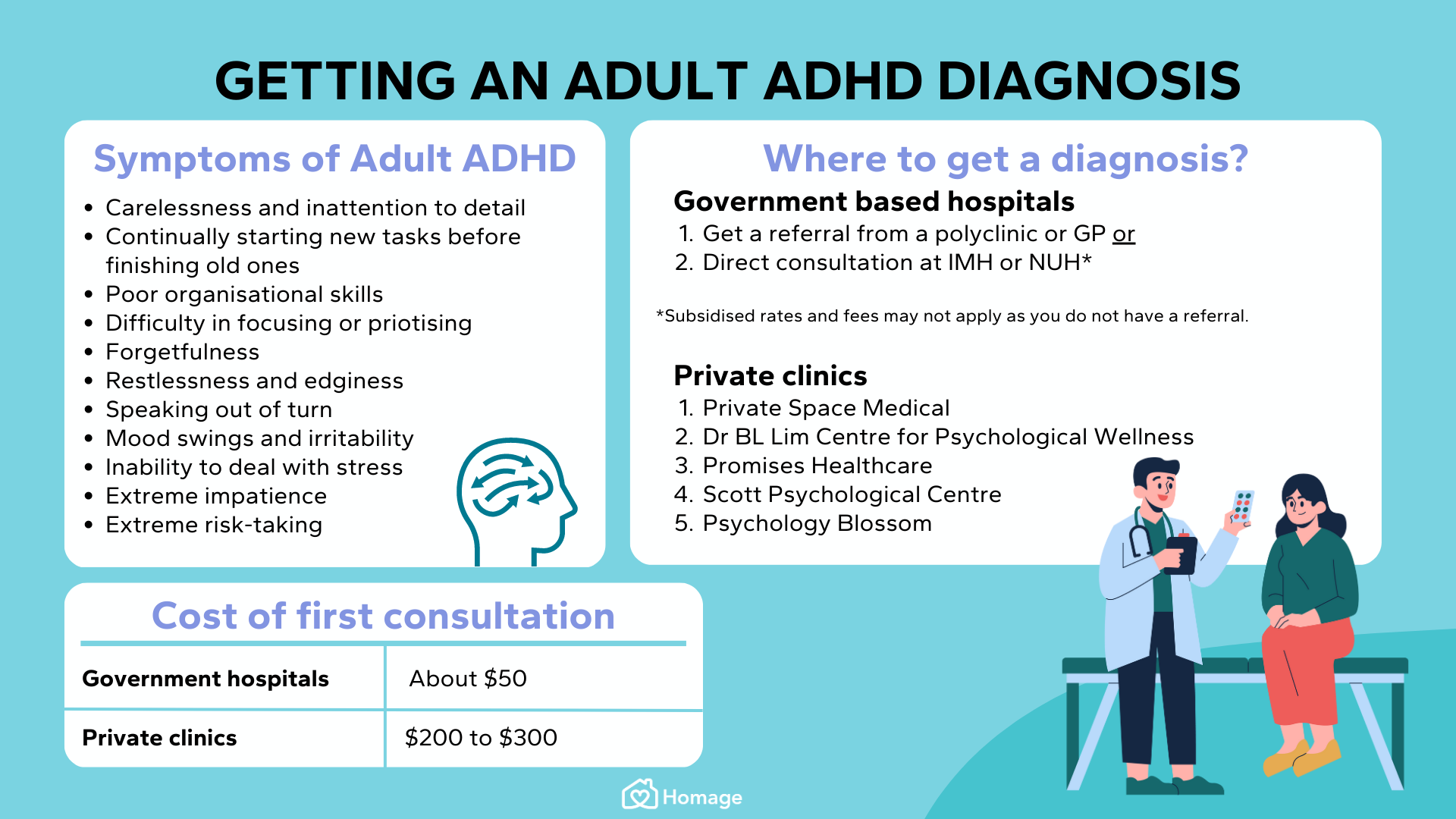Adult ADHD: Next Steps After A Suspected Diagnosis

Table of Contents
Seeking a Professional Diagnosis for Adult ADHD
A suspected diagnosis is just the first step. Seeking a comprehensive evaluation from a qualified healthcare professional is crucial for accurately determining whether you have Adult ADHD and ruling out other potential conditions that share similar symptoms. This evaluation should be conducted by a psychiatrist, psychologist, or other healthcare professional specializing in ADHD.
- Comprehensive Evaluation: This typically involves a detailed assessment of your symptoms, medical history, and developmental history. Your doctor will want to understand how your symptoms impact your daily life, relationships, and work.
- Diagnostic Tools: Several tools may be used to aid in diagnosis, including:
- Behavioral Assessments: These questionnaires evaluate your behavioral patterns and symptoms.
- Psychological Testing: Standardized tests like the Connors Adult ADHD Rating Scales and the Weschler Adult Intelligence Scale (WAIS) can provide objective measures of inattention, hyperactivity, and impulsivity.
- Interviews: In-depth interviews with you and potentially family members help gather a comprehensive picture of your symptoms and their impact.
- Differential Diagnosis: It's essential to rule out other conditions that may present with similar symptoms, such as anxiety disorders, depression, or learning disabilities. A proper diagnosis ensures you receive the most appropriate and effective treatment.
- Finding a Specialist: Locating a qualified professional may involve contacting your primary care physician for a referral, searching online directories of mental health professionals, or utilizing resources like the [link to a relevant resource, e.g., CHADD (Children and Adults with Attention-Deficit/Hyperactivity Disorder) website].
Understanding Your Adult ADHD Diagnosis
Once you receive a diagnosis, take time to thoroughly understand it. Schedule a follow-up appointment with your healthcare provider to discuss the specifics of your diagnosis and ask any questions you may have.
- ADHD Subtypes: Adult ADHD can present in different ways, including:
- Predominantly Inattentive Presentation: Characterized primarily by inattention and difficulty focusing.
- Predominantly Hyperactive-Impulsive Presentation: Characterized primarily by hyperactivity and impulsivity.
- Combined Presentation: Individuals exhibiting significant symptoms of both inattention and hyperactivity-impulsivity.
- Impact on Life: Understanding how ADHD affects different aspects of your life—work, relationships, finances, and personal well-being—is crucial for developing an effective treatment plan.
- Co-occurring Conditions: ADHD often co-occurs with other mental health conditions like anxiety, depression, and learning disabilities. Addressing these co-occurring conditions is essential for comprehensive treatment.
Treatment Options for Adult ADHD
Treatment for Adult ADHD is often multifaceted and personalized to address individual needs and symptom severity. Your healthcare provider will work with you to develop a treatment plan that incorporates various approaches.
- Medication: Medication is a common treatment option. Stimulants and non-stimulants are available, each with its own benefits, side effects, and considerations. Your doctor will help you determine the best option based on your specific needs and medical history.
- Therapy: Therapy, such as cognitive behavioral therapy (CBT) and psychotherapy, can teach coping mechanisms and strategies for managing symptoms. These therapies can help improve organization, time management, and emotional regulation.
- Lifestyle Changes: Lifestyle modifications such as regular exercise, a balanced diet, sufficient sleep, and stress management techniques can significantly impact symptom management.
- Personalized Treatment Plan: Your treatment plan should be tailored to your specific needs and preferences, and regularly reviewed and adjusted as needed. Regular follow-up appointments are crucial for monitoring progress and making necessary adjustments.
Building a Support System for Managing Adult ADHD
Living with ADHD requires ongoing effort and support. Building a strong support network is essential for successful management and improved quality of life.
- Family and Friends: Educate your loved ones about ADHD to foster understanding and support.
- Support Groups: Connecting with others who understand your experiences can provide valuable emotional support and practical strategies. Consider joining online or in-person support groups such as [link to a relevant support group, e.g., CHADD support groups].
- ADHD Therapists and Coaches: A therapist specializing in ADHD can provide additional support and guidance in developing coping mechanisms and strategies.
Taking Control of Your Adult ADHD
This article has outlined the key steps to take after suspecting you might have Adult ADHD. Remember, obtaining a professional diagnosis is crucial for accurate assessment and the development of a personalized treatment plan. Understanding your specific subtype of ADHD, exploring various treatment options (medication, therapy, and lifestyle changes), and building a robust support system are all vital components of successful management. Don't let Adult ADHD control your life. Take the first step towards better management by scheduling a consultation with a qualified professional today. Remember to utilize the resources mentioned above to locate specialists and support groups in your area.

Featured Posts
-
 Pw Cs African Retreat Exit From Senegal Gabon Madagascar And More
Apr 29, 2025
Pw Cs African Retreat Exit From Senegal Gabon Madagascar And More
Apr 29, 2025 -
 British Paralympian Missing In Las Vegas Week Long Search Underway
Apr 29, 2025
British Paralympian Missing In Las Vegas Week Long Search Underway
Apr 29, 2025 -
 Pete Rose Pardon Trumps Pledge After Baseball Legends Passing
Apr 29, 2025
Pete Rose Pardon Trumps Pledge After Baseball Legends Passing
Apr 29, 2025 -
 Betting On Tragedy The Growing Problem Of Wildfire Wagering In Los Angeles
Apr 29, 2025
Betting On Tragedy The Growing Problem Of Wildfire Wagering In Los Angeles
Apr 29, 2025 -
 Papal Conclave Debate Over Convicted Cardinals Eligibility To Vote
Apr 29, 2025
Papal Conclave Debate Over Convicted Cardinals Eligibility To Vote
Apr 29, 2025
Latest Posts
-
 Beyonces Daughters Blue Ivy And Rumi A Striking Resemblance At The 2025 Super Bowl
Apr 30, 2025
Beyonces Daughters Blue Ivy And Rumi A Striking Resemblance At The 2025 Super Bowl
Apr 30, 2025 -
 Funerailles Papales Protocole Et Aspects Pratiques Du Placement Des Invites
Apr 30, 2025
Funerailles Papales Protocole Et Aspects Pratiques Du Placement Des Invites
Apr 30, 2025 -
 Rozkrito Prichini Okremogo Sidinnya Trampa Ta Zelenskogo Na Zustrichi
Apr 30, 2025
Rozkrito Prichini Okremogo Sidinnya Trampa Ta Zelenskogo Na Zustrichi
Apr 30, 2025 -
 Funerailles Papales Le Defi De L Organisation Des Places Assises
Apr 30, 2025
Funerailles Papales Le Defi De L Organisation Des Places Assises
Apr 30, 2025 -
 Vidstan Mizh Trampom Ta Zelenskim Analiz Politichnikh Signaliv
Apr 30, 2025
Vidstan Mizh Trampom Ta Zelenskim Analiz Politichnikh Signaliv
Apr 30, 2025
